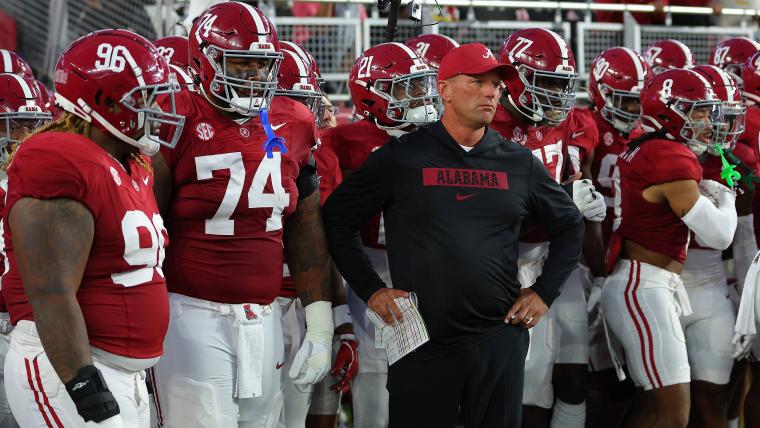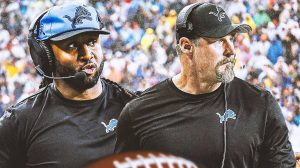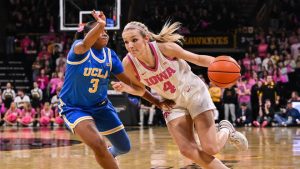
Following Alabama’s Loss in the ReliaQuest Bowl: Kalen DeBoer Reflects on Locker Room Moments
In the world of college football, where every game carries the weight of expectation, losses sting more than most. Alabama’s defeat in the ReliaQuest Bowl was no exception. As the team’s head coach, Kalen DeBoer, stood in the locker room after the game, the emotional aftermath reverberated not only through the stadium but also within the walls of the locker room. As the players processed the loss, DeBoer took a reflective stance, recounting moments that stood out in the locker room that morning. These moments were not just about defeat; they were about resilience, leadership, and growth.
The Humbling Reality of Loss
The ReliaQuest Bowl, typically a highlight for any major program, was supposed to be a stepping stone for Alabama, a program accustomed to winning at the highest level. But when the final whistle blew, marking their loss, the reality set in quickly: for many players, this bowl game was one of their final opportunities to put on the Alabama uniform. The sting was palpable in the locker room, and DeBoer couldn’t help but notice the heavy atmosphere hanging in the air.
“We always talk about the grind, the expectation, and what it means to represent a program like Alabama,” DeBoer said, his voice quiet, almost reflective. “But when you lose, especially in a game like this, it really shows you how important every moment of preparation is.”
The locker room was filled with the sound of cleats scraping on the floor, helmets being placed into bags, and the quiet hum of defeated voices. Some players had already started to take off their pads, while others lingered in their chairs, staring at the ground. It wasn’t the normal high-energy atmosphere one might expect after a hard-fought contest, even in defeat. There was a somber recognition of how close they had come, and yet, how far they had fallen from their goal.
The Role of Leadership
In the midst of this raw emotion, one of the biggest challenges for DeBoer was stepping into the leadership role and navigating the emotional waters of his team. DeBoer had been in this position before, but each time, it was a new set of emotions to manage, a new set of players to guide. As he surveyed the room, he noticed a few key players who were visibly shaken, while others were more composed, though no less affected by the result.
“Sometimes, as a coach, you’re not just teaching about the X’s and O’s,” DeBoer explained. “You have to help players understand how to handle the emotional side of the game—the disappointments, the struggles, and how to channel that energy into something positive.”
He wasn’t wrong. Many of the veterans in the room, who had been on the team for several years, were taking the loss particularly hard. These players knew the significance of the game, and for them, it wasn’t just about this season; it was about their entire Alabama career. DeBoer had to remind them of their impact—not just on the field, but within the culture of the program.
“Sometimes, you lose not because you weren’t prepared, but because the other team was simply better on that day. But as leaders, your job is to help others process that,” DeBoer continued. “You’ve got to lead with grace and humility, and that’s what I saw from a few of our leaders in that room this morning.”
Alabama’s leadership, DeBoer pointed out, was present in those moments. Players like senior linebacker Jake Martinez and senior wide receiver Brian Jackson gathered their teammates, offering words of encouragement. Even in the face of defeat, their leadership shone through. These players understood that losses were part of the journey—part of what it meant to play for Alabama.
“They stood tall, even though they were hurting. They spoke from the heart, reminding their teammates of the bigger picture and that every setback is a chance to learn and grow,” DeBoer recalled. “It was inspiring to see that level of maturity and leadership. That’s what makes Alabama such a special program—there’s always that drive to push forward, no matter the outcome.”
Dealing with Disappointment
Despite the leadership on display, the team was still grappling with the weight of disappointment. The ReliaQuest Bowl had been an opportunity to finish the season on a high note, but instead, it marked a bitter end. There were many moments during the game that could have gone differently, and the players knew it. Missed opportunities, critical turnovers, and key mistakes were all part of the story. For the coaching staff, it was a challenge to not let those mistakes overshadow the team’s efforts throughout the season.
DeBoer reflected on how difficult it was to convey to the players that a single game didn’t define them. “When you’re in that moment of loss, it’s hard to see beyond the immediate. Everything feels like it’s crumbling. But part of the job as a coach is to help the players see that there’s more to who they are than just the scoreboard.”
He noted that, despite the defeat, the players still had much to be proud of. The season had been filled with challenges, and the team had fought through adversity to get to the bowl game. While the loss was tough, it didn’t erase all of the progress made along the way.
“It’s a tough pill to swallow, but I always remind my players that character is built in those tough moments. It’s easy to be positive when you’re winning. But when you lose, that’s when your true character is revealed,” DeBoer said.
The theme of character was pervasive in the locker room that morning. DeBoer encouraged his players to reflect on what they had accomplished, not just individually, but as a team. For many of the younger players, it was an opportunity to learn from the veterans, to understand that defeat was just a part of the sport and that it was how they responded that would define them in the long term.
Moving Forward: Lessons Learned
As the players began to gather their things and head out of the locker room, there was a noticeable shift in the mood. The crushing weight of the loss was still there, but it had been tempered by the conversations and the reflections that had taken place. DeBoer knew that his team needed to use this moment as a springboard for future success.
“We have to take this loss and use it as motivation for the future,” DeBoer said. “That’s how we’re going to move forward. We’ll look back at this game and learn from it, but we won’t dwell on it. We’ll grow stronger as a result.”
DeBoer’s approach was one rooted in optimism, even in the face of defeat. It was a philosophy that had guided him through many seasons, and one he hoped would inspire his players to bounce back stronger in the years to come.
“We can’t change what happened in the past,” DeBoer reflected. “But we can control how we react and how we prepare for the future. That’s the challenge ahead for us.”
As the locker room emptied, there was a sense that this loss, as painful as it was, would not define the program. Instead, it would be a catalyst for growth—a lesson learned in the most difficult way possible. And for DeBoer, as a coach, the hope was that this moment would serve as a reminder that even in the darkest times, there was always room for improvement, growth, and the pursuit of greatness.
In the coming months, as Alabama prepared for the next season, the lessons from the ReliaQuest Bowl would be ingrained in the team’s mindset. For DeBoer, the locker room moments of that day would serve as a reminder that no loss is ever truly wasted.






